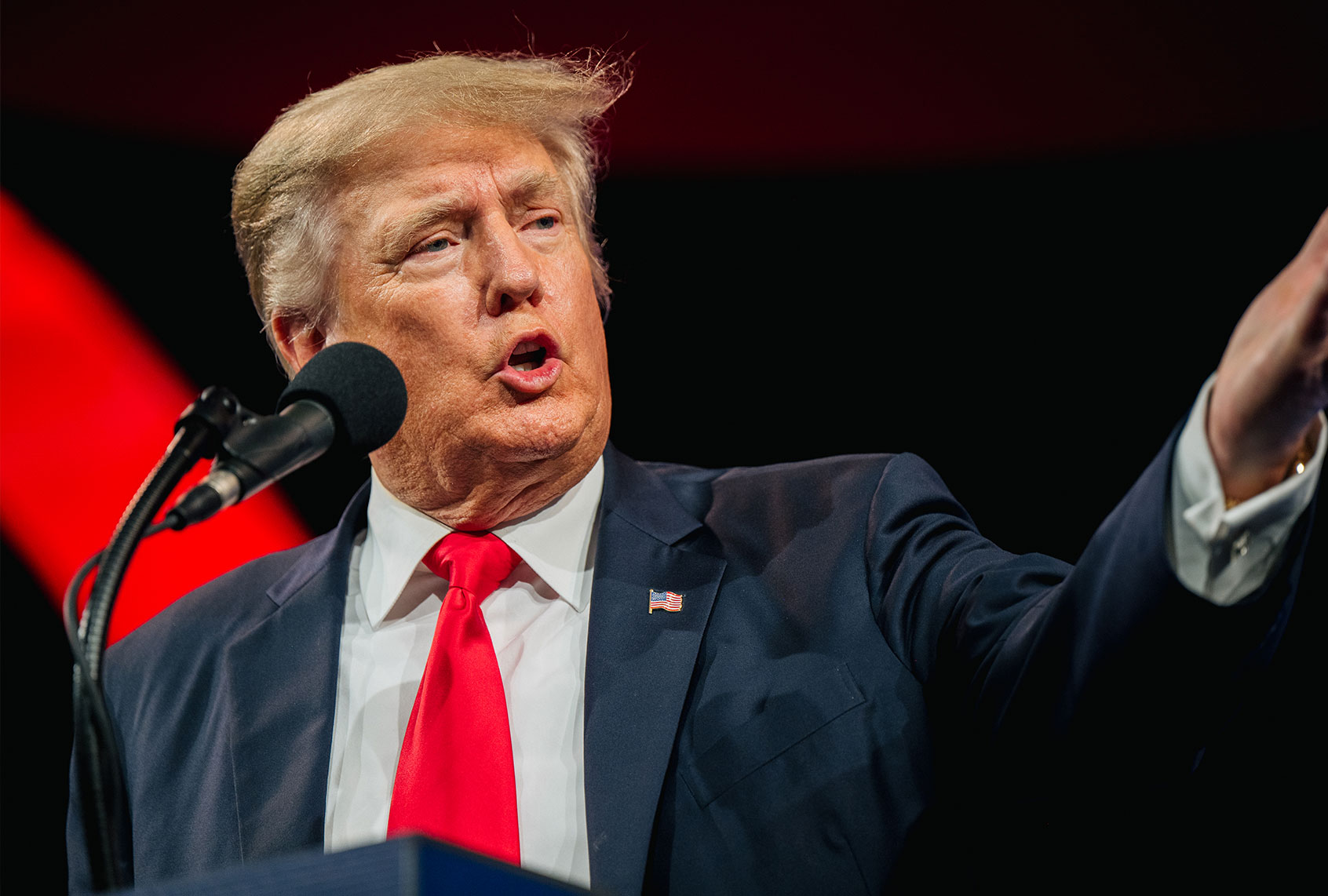
Former President Donald Trump's litigious lifestyle got a little more complicated after he launched an expansive racketeering lawsuit against former Secretary Hillary Clinton and the Democratic Party.
As Politico reported, the Tuesday court filings could actually end up helping Democrats more than hurting them.
Among multiple claims alleged in the lawsuit are "racketeering" and "conspiracy" to commit injurious untruths: "Acting in concert, the Defendants maliciously conspired to weave a false narrative that their Republican opponent, Donald J. Trump, was colluding with a hostile foreign sovereignty." Trump seeks both compensatory and punitive damages, and claims he incurred expenses of at least $24 million "in the form of defense costs, legal fees, and related expenses."
It's similar to the allegations that many legal experts had with Trump's special counselor investigating the Russia investigation. John Durham's Feb. 2022 filing lays out some allegations, but as the New York Times explained, "these narratives are often based on a misleading presentation of the facts or outright misinformation."
The new Trump racketeering lawsuit is essentially doing the same thing to allege that nothing in the notorious dossier was true. It hands those he's suing a gift that is twofold, according to legal experts.
First, as legal analyst Harry Litman pointed out last year, any lawsuit involving the 2016 election, the dossier and allegations over Russia means that the other side can ask questions that special counsel Robert Mueller wasn't allowed to.
For example, because Mueller couldn't indict a sitting president, he didn't even go after information Trump had about Russia, Vladimir Putin and his contact with them in 2016 and before. At one point, activists mocked what was called the "take-home test," a slate of questions by Mueller sent to Trump's lawyers for him to answer.
A lawsuit from Trump opens him up to an actual deposition and questions about the 2016 election and contact with Russia without the power of the Oval Office to protect him. Donald Trump Jr. was also not questioned about his role in the Trump Tower meeting with Russian lawyer Natalia Veselnitskaya. Now, the individuals who Trump is suing could finally ask both men questions.
The second way that Trump's own lawsuit could hurt him is what Politico cited in Tuesday's filing: Now that there is a lawsuit against the law firm and lawyers involved in the dossier, they can claim the information falls under attorney-client privilege.
The Tuesday legal paperwork makes the argument that any details about confidential discussions about the dossier "should remain secret in part because Trump's famous litigiousness." The former president filed over 7,000 lawsuits before running for office.
The Politico report cited court filings from lawyer Marc Elias, who explained how the Trump lawsuit could help protect Democrats.
"I also generally remember being aware that [Trump] had used the threat of defamation litigation for tactical advantage and had filed and threatened meritless claims of defamation in the past," he wrote.
"Significantly, I recall that during the Republican primaries in 2015 and 2016, candidate Trump threatened to sue several rival candidates, campaigns and political organizations for defamation," Elias continued in the filing. "According to media reports, these included threatening to sue a conservative group for defamatory ads; threatening to sue a supporter of candidate Jeb Bush for defamation if that individual placed advertisements critical of candidate Trump; threatening to sue a political committee supporting candidate John Kasich if that committee aired advertisements critical of candidate Trump and tweeting 'Watch Kasich squirm—if he is not truthful in his negative ads I will sue him just for fun!"; and threatening to sue candidate Ted Cruz for defamation related to campaign advertisements."
Courts often uphold attorney-client privileges if the evidence was part of a lawsuit or with anticipation of litigation.







